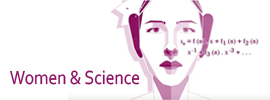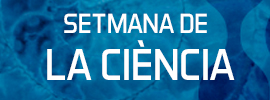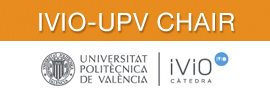Research staff from FISABIO (for it’s Spanish initials; Foundation for the Promotion of Health and Biomedical Research of the Valencian Community) – Department of Health of Alcoy and the Campus Gandia of the Universitat Politècnica de València have developed an innovative system for the diagnosis of alterations in stereoscopic vision, which is particularly useful in children, since an early diagnosis is crucial to the outcomes of possible treatments. The system has been tested in 40 patients, and patented and registered in the Patent Bank of the Generalitat Valenciana. The current phase consists of the execution of a Polisabio (UPV-Fisabio) innovation project in 2020, to continue with the development of a compact unit that can be installed in doctors’ offices.
Stereopsis is the phenomenon that allows us to perceive an object as a stereoscopic image or in three dimensions and, therefore, allows us to estimate the volumes and distances at which the objects are located. According to Carmela Porcar, an ophthalmologist at the Virgen de los Lirios Hospital, Alcoy, and researcher of the project, “this capacity begins to develop from birth and is established by seven; therefore, the optimal treatment has to be prior to this age. For this reason, a key objective of the project was to enable early diagnosis of alterations in stereopsis.”
En este sentido, el software se ha desarrollado con formas y figuras atractivas para los niños y niñas pequeños, además de ser una aplicación intuitiva y, por tanto, de fácil manejo, puntualiza Fernando Boronat, investigador del Campus de Gandia de la Universitat Politècnica de València e investigador principal del equipo de la UPV del proyecto.
To this end, “the software was developed with shapes and figures that appeal to young children. Additionally, it is an intuitive and easy to use application,” points out Fernando Boronat, researcher at Campus Gandia of the Universitat Politècnica de València and principal researcher in the UPV team of the project.
“When there is a sudden loss of vision, or when there is the presence of strabismus or a lazy eye, alterations in stereopsis may occur,” according to Dr. Ezequiel Campos, head of the Ophthalmology service of the Virgen de los Lirios Hospital, Alcoy, and FISABIO’s principal researcher for the project. Around 5% of the world population has problems in the fusion of images, usually as a result of amblyopia (commonly known as lazy eye) or a strabological pathology (strabismus). Therefore, an early diagnosis is important in order to correct these causes and rehabilitate the eye well in advance.
ARTIFICIAL VISION
 The platform that has been designed offers a system to measure the visual depth perception in patients, thanks to artificial vision techniques.It consists of 3D glasses and a monitor, or augmented reality glasses, an artificial vision system that works with a processor, cameras and a device that supports the patient’s chin.
The platform that has been designed offers a system to measure the visual depth perception in patients, thanks to artificial vision techniques.It consists of 3D glasses and a monitor, or augmented reality glasses, an artificial vision system that works with a processor, cameras and a device that supports the patient’s chin.
The system improves accuracy with respect to conventional tests (Titmus, TNO, Randot Test and Lang Test) and reduces the number of false positives and negatives, which are very high in these tests, according to the research team. It enables the estimation of depth perception in millimeters and acuities of less than 400-800 arc seconds (arcsec). It avoids the problem of the learning effect of fixed responses and, since it is not based on contours, it also avoids monocular clues (which can be perceived by vision with one eye), making it more reliable.
The platform also detects the degree of stereopsis and allows the quantitative evolution to be monitored throughout the treatment period. Patient data is collected and stored automatically.











